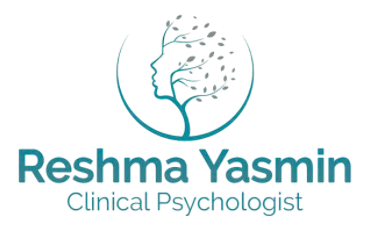
Overcoming Trauma: Essential Strategies for Managing Its Impact on Mental Health
Traumatic events—shocking, stressful, or alarming situations—can profoundly impact an individual’s mental and physical well-being. These events are not only distressing at the moment but can leave a lasting imprint on one’s health and overall quality of life. Understanding how trauma affects mental health and exploring effective strategies for healing can significantly improve the path to recovery and well-being.
Understanding Traumatic Events
A traumatic event is characterized by serious threats to one’s safety or life, but its definition extends beyond just objective danger. Trauma is defined by the subjective emotional experience of the individual rather than the event itself. This means that what may be traumatic for one person might not be for another. Common examples include:
- Accidents: Car crashes, natural disasters, or serious injuries.
- Violence: Physical assault, sexual abuse, or domestic violence.
- Loss: Death of a loved one or a significant personal loss.
Trauma can also extend to experiences that lead to feelings of isolation or overwhelm, even if they don’t involve direct physical danger. The emotional impact of trauma can be severe, affecting not just the individual but also their relationships and loved ones.
How Trauma Affects Mental Health
**1. Initial Reactions: Shock and Denial
Immediately following a traumatic event, shock and denial are common reactions. These feelings serve as psychological defenses, helping individuals cope with the initial emotional impact by numbing or distancing them from the event. This protective mechanism can prevent overwhelming emotional distress but does not address the underlying trauma.
**2. Long-Term Emotional and Psychological Impact
Once the immediate shock subsides, trauma can manifest in various ways:
- Anxiety: Individuals may experience persistent worry, fear, or panic, making it difficult to manage daily tasks or enjoy activities. Anxiety can lead to physical symptoms such as increased heart rate, sweating, and insomnia.
- Depression: Persistent sadness, hopelessness, and a loss of interest in previously enjoyed activities are common. Depression following trauma can severely affect one’s ability to function and engage in daily life.
- Intrusive Memories: Traumatic events can lead to recurring, distressing memories or flashbacks, making it challenging to move past the event and focus on the present.
- Substance Use: To cope with the symptoms of trauma, individuals may turn to alcohol or drugs. This maladaptive coping mechanism can lead to substance use disorders, exacerbating both the trauma and overall mental health.
**3. Post-Traumatic Stress Disorder (PTSD)
PTSD is a severe form of trauma response that can develop after experiencing or witnessing a traumatic event. Symptoms include:
- Re-experiencing: Flashbacks, nightmares, or intrusive thoughts related to the trauma.
- Avoidance: Steering clear of reminders or places that trigger memories of the trauma.
- Hyperarousal: Increased arousal symptoms such as irritability, difficulty sleeping, or being easily startled.
- Negative Mood: Persistent negative emotions, feelings of detachment, or difficulty experiencing positive emotions.
PTSD can interfere significantly with daily life and require specialized treatment for effective management.
Strategies for Healing and Moving Forward
**1. Seek Professional Support
Professional help is crucial in managing the effects of trauma. Therapies such as cognitive-behavioral therapy (CBT) and eye movement desensitization and reprocessing (EMDR) are effective for treating trauma and PTSD. A mental health professional can provide personalized strategies to address symptoms and support the healing process.
**2. Build a Support System
Connecting with others can be a vital part of recovery. Support from family, friends, or support groups can provide a sense of community and understanding. Sharing experiences with those who have faced similar challenges can foster a sense of belonging and reduce feelings of isolation.
**3. Develop Coping Strategies
Learning and practicing healthy coping mechanisms can help manage the emotional and psychological impact of trauma. These might include:
- Mindfulness and Relaxation Techniques: Practices such as meditation, deep breathing, and progressive muscle relaxation can help reduce stress and improve emotional regulation.
- Physical Activity: Regular exercise can boost mood, reduce anxiety, and improve overall well-being.
- Creative Outlets: Engaging in creative activities such as writing, art, or music can provide a constructive way to process emotions and express oneself.
**4. Prioritize Self-Care
Self-care is essential for recovery and overall mental health. This includes maintaining a balanced diet, ensuring adequate sleep, and setting aside time for activities that bring joy and relaxation. Taking care of one’s physical health can positively impact emotional well-being.
**5. Educate Yourself About Trauma
Understanding trauma and its effects can empower individuals to take control of their recovery. Psychoeducation helps reduce stigma and promotes a more compassionate approach to mental health. Learning about the nature of trauma and available treatments can also encourage proactive engagement in the healing process.
Moving Forward
Trauma can leave a profound impact on mental health, but with the right support and strategies, healing is possible. By seeking professional help, building a supportive network, and adopting healthy coping mechanisms, individuals can navigate the challenges of trauma and work towards recovery. Embracing self-care and education about trauma can further support the journey to well-being and a more fulfilling life.

0 comments